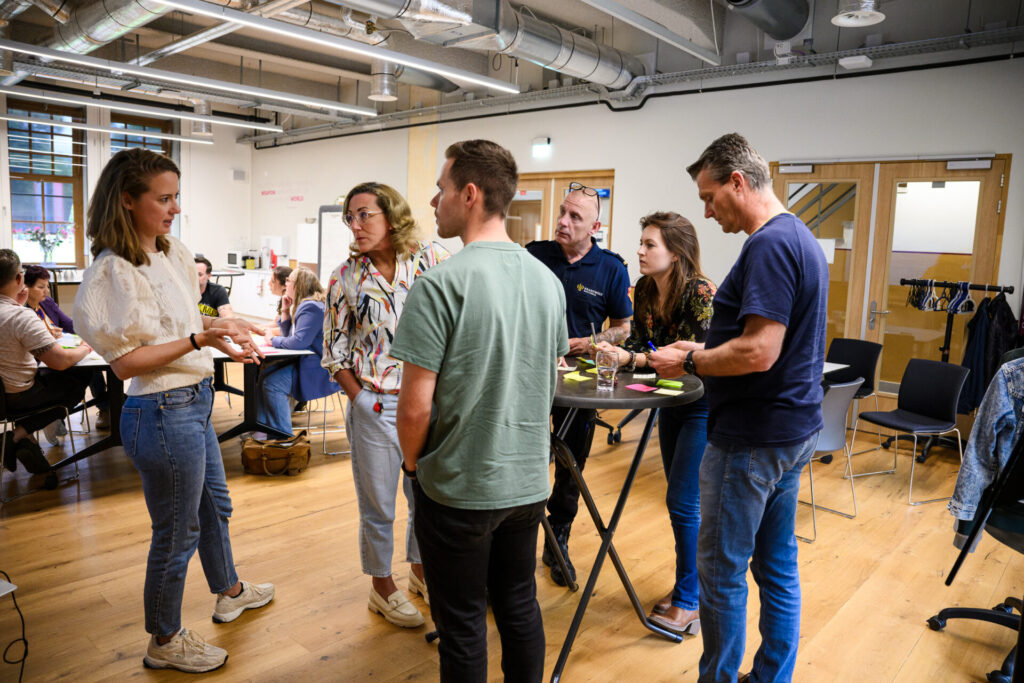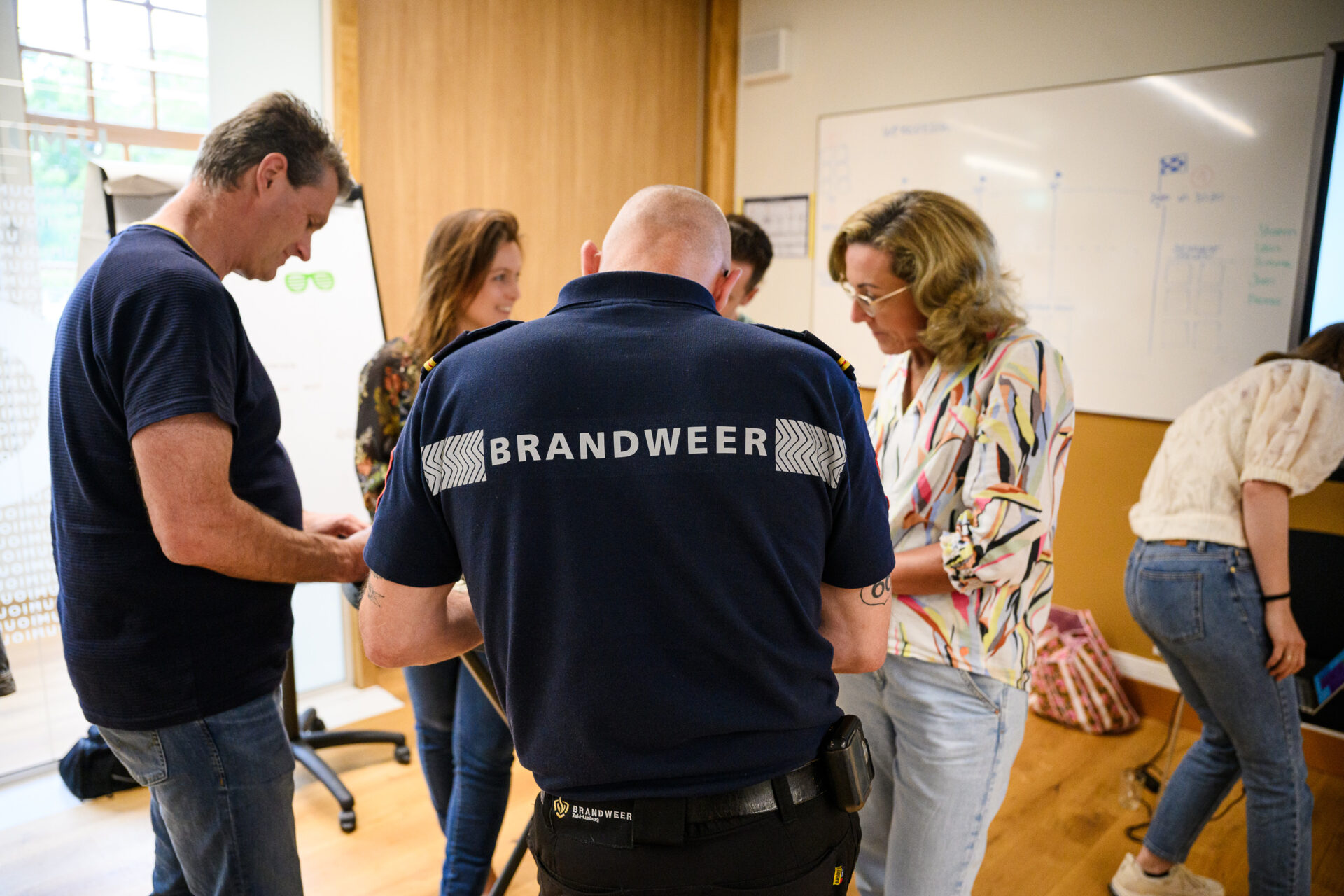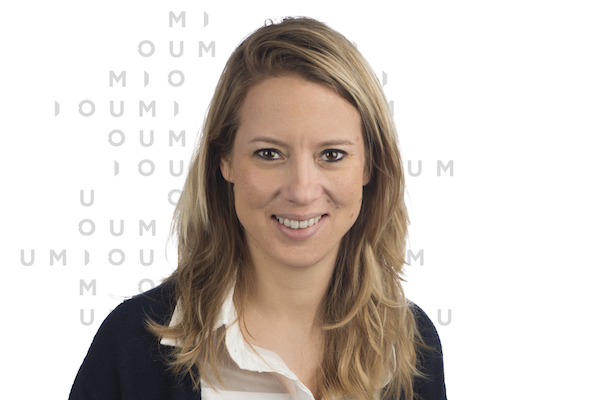South-Limburg’s Fire Brigade faced a significant challenge: how to ensure that the on-call system continues to meet the needs of both the organisation and its employees? With a strong desire to innovate and a focus on balancing work and personal life, the organisation decided to bring fresh external perspectives. Partnering with UMIO and a multidisciplinary student team, they set out to break entrenched patterns and chart a sustainable course. The result? These insights not only inform future solutions but also leave a lasting impact on organisational culture and collaboration.
While the on-call system had functioned effectively for years, colleagues noticed that the current approach was becoming less suited to the increasing complexity of incidents and changing personal circumstances. “Our environment has changed,” explains Roger Jennen, station chief and Chief Duty Officer at the South Limburg Safety Region, Veiligheidsregio Zuid-Limburg. “For instance, nowadays, there are more single families or caregiving responsibilities among colleagues, which calls for a more flexible system.”
At the same time, employees demonstrated high levels of engagement and responsibility, often stepping in to cover for absent colleagues. “However,” says Sharon Bakker, staff member in the Policy and Duty Officer department, “our colleagues felt that things could be better. There’s a strong sense of solidarity and responsibility, and people are always willing to cover for one another. But we realised that the balance between regular work, on-call duties, and personal life deserved more attention.” These insights motivated the organisation to collaborate with UMIO on a project aimed at innovation and sustainable support for their team.
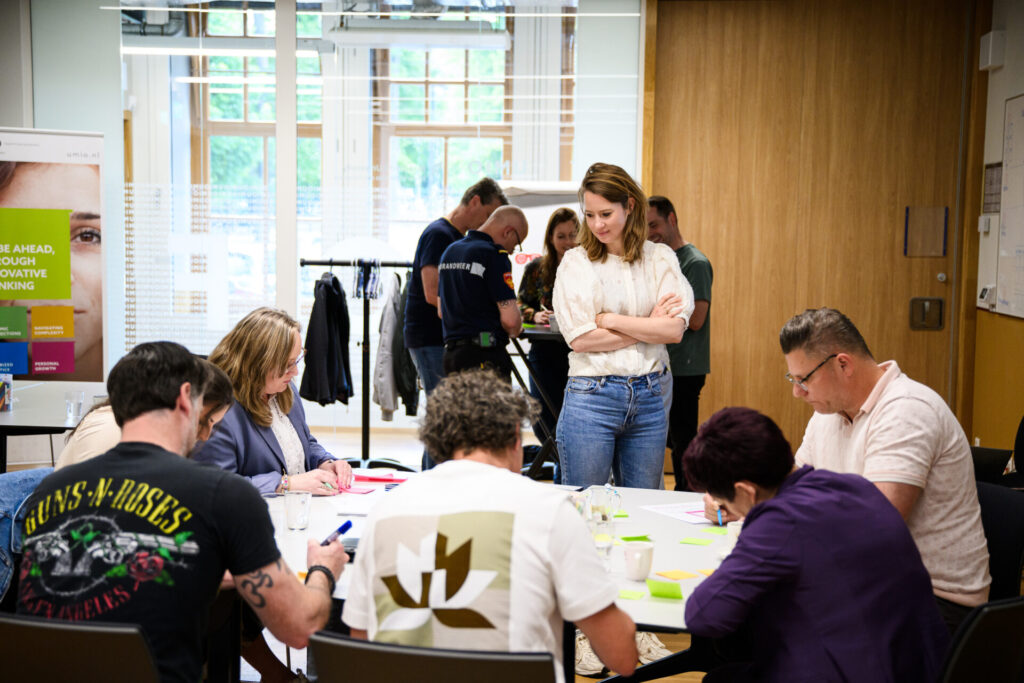
Addressing Complex Challenges with UMIO
The decision to involve UMIO stemmed from previous positive collaborations. “We’d worked with you on a complex issue before and found that your approach really helped us get to the heart of the problem,” says Joeri Kerkhoff, Advisor with the information management team. When faced with another complex challenge, turning to UMIO again was a natural choice. Roger elaborates: “What appealed to us was the focus on first understanding the problem thoroughly before jumping to a solution. This approach helped us map out our challenge clearly and think in the right direction for solutions.”
A Fresh Look at Entrenched Patterns
UMIO’s Strategic Innovation Leader, Carmen Vonken, facilitated a four-day Design Sprint to define the issue clearly. She enlisted six students—four from Maastricht University’s Faculty of Psychology and Neuroscience and two from Maastricht University School of Business and Economics. “The students delved into the literature to investigate the challenges and processes, and they conducted interviews to uncover more information about the current organisational structure and practices,” says Carmen.
This deliberate choice was crucial, as Roger explained: “We chose to have the students conduct the interviews to avoid our own experiences influencing the questions and answers. The students approached the process with fresh eyes, asking questions that really made us reflect on our way of working. They encouraged us to examine our own behaviour and practices critically.” This process helped the organisation recognise and evaluate entrenched patterns.
Attention was also given to the complexity of the issue. “It wasn’t just about reorganising shifts,” Joeri noted, “but about understanding the many underlying factors, such as culture, regulations, and the impact on people.” UMIO’s objective and structured approach made it possible to map out this complexity and collaborate with the organisation to develop new insights.
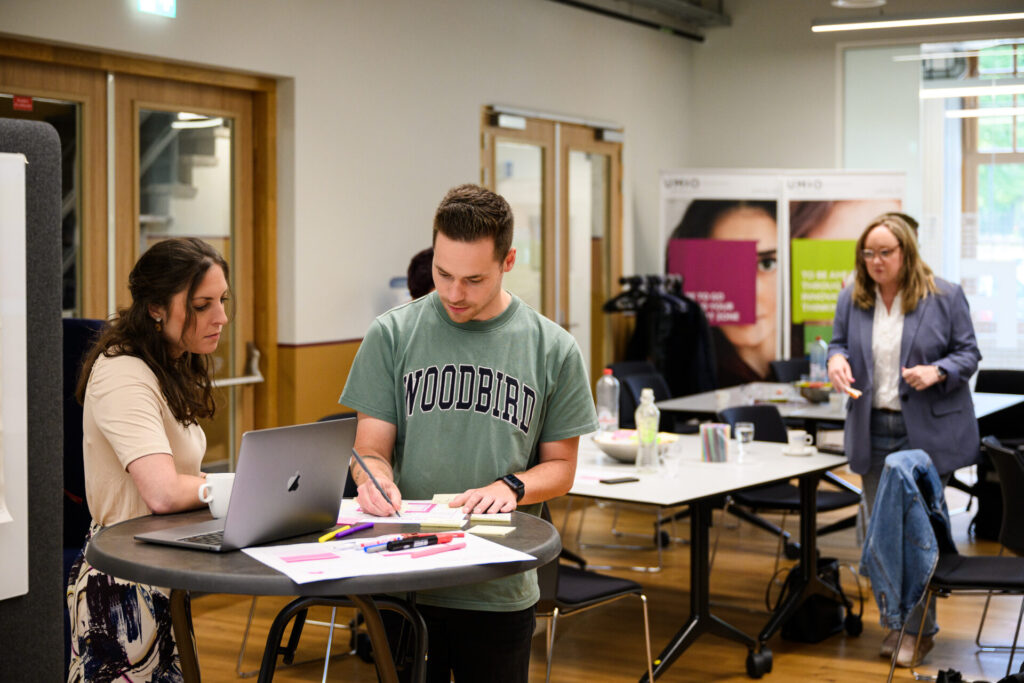
A roadmap for the Future
The project resulted in a clear roadmap with two main themes: health and work design. “We knew from the start that we wouldn’t have a complete solution immediately,” Roger explained. “The issue is too complex for that. But we now have clear directions and a plan for the coming years.” The roadmap focuses on sustainable improvements, while a separate project group tackles smaller, more quickly achievable actions.
The project also had a lasting impact on how the organisation works. “Within a few months, we achieved results that would normally take years. That really made an impression,” Roger summarised. The collaboration with UMIO and the students was consistently well-received by colleagues, thanks in part to the objective and facilitative approach.
Guidance toward a solution
“What I really appreciated about this collaboration is that UMIO didn’t impose a solution on us,” said Sharon. “You helped us think for ourselves about where we want to go. Carmen pushed us to first fully understand the core of the issue and consider who it affects before working toward a solution. I find myself applying that approach to other challenges in the organisation. But the most valuable outcome is that we now have a clear understanding of our next steps. Change takes time, but we’re moving forward with full confidence.”
